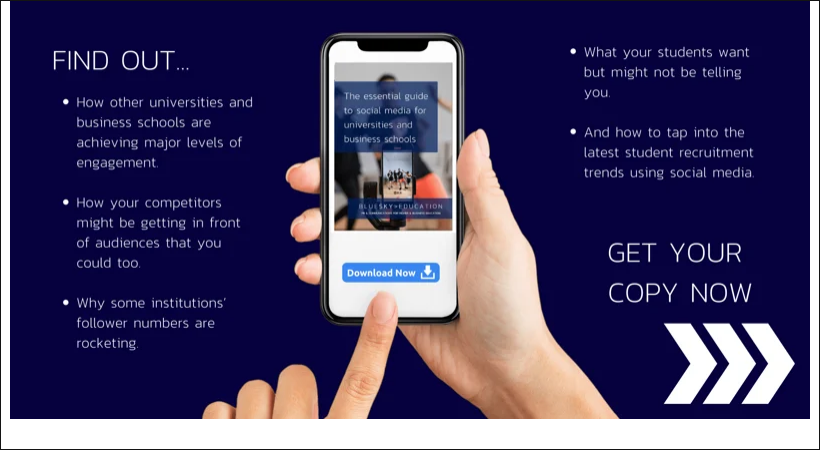As an academic, cultivating an online presence offers essential opportunities for networking, career advancement, and boosting the visibility of your research. For women and members of more marginal groups in academia, developing an online presence can also empower people by enabling community-building.
Digital platforms are a way of connecting with other researchers, potential collaborators, and even funding bodies. Building a positive reputation in front of the right crowd makes you a more attractive candidate for grants, job opportunities, and speaking engagements.
Promoting yourself and your work online involves both managing your own platforms, such as your personal website and social media profiles, and engaging with a range of media outlets and publications by providing commentary, interviews, and guest articles on current topics relating to your field of expertise.
While self-promotion can be an uncomfortable experience for some people, it’s important not to misconstrue it for bragging. Highlighting your achievements, both individually and as part of a team, carries benefits for your career, but it also enriches online discourse by adding to the stock of accurate, verifiable data and challenging misinformation.
It allows you to communicate with people inside and outside of your academic silo, sharing your expertise, and creating opportunities to expand learning in new, multi-disciplinary directions.
PR consultants can provide vital support to help you manage your online presence, especially when it comes to engaging with the media. To find out more, here are three tips to help you build an audience and boost your visibility online:
- Maintain a professional profile on social media
- Engage with online publications to boost visibility in search engines
- Protect yourself from online harassment
1. Maintain a professional profile on social media
Your professional profile forms the backbone of your online presence, giving you an opportunity to engage in real-time discussions with other members of the academic community, journalists, and policymakers, and also providing a hub where you can share your academic publications and media coverage of your work.
Choosing the right platforms is key.
LinkedIn is ideal for showcasing your CV, recent publications, and professional achievements. It acts as a billboard for your professional identity, and this makes it an excellent platform to network with colleagues, possible collaborators, and recruiters.
X, formerly Twitter, is a great platform for promoting your work by engaging in real-time academic discourse. It provides a fast-paced environment that helps to tie your field of expertise to current events. Just be mindful that while the narrow word limit for posts on X makes it great for sharing your expertise in bitesize chunks, it can be challenging to convey nuance.
You can also use services like WordPress or Google Sites to design your own professional website for a small fee. This can serve as another place to share your research interests, publications, teaching materials, and contact details.
A PR consultancy can support you in doing this by sharing links to media coverage featuring your research so you can post them across your platforms, boosting viewership and engagement with the articles. PR consultants can also offer tailored media workshops to advise you on how to build and maintain your presence on social media.
2. Engage with online publications to boost visibility in search engines
Search engines like Google rank the results they show you based on several metrics, including relevancy to key terms in your search query, content quality, website structure, and backlinks to reputable websites.
When it comes to building your online presence, especially in the early stages, this means that if someone searches for your name, articles in reputable online publications featuring contributions from you will rank more highly than your personal website or social media platforms.
As such, it’s vitally important that you engage with a range of online publications, such as digital magazines, official websites of national and international newspapers, reputable blogs, and podcasts.
Of course, it’s important to ensure these publications have a reputation for high-quality factual reporting. PR consultants can help with this by vetting the media opportunities they offer you to ensure you appear in the kinds of media outlets that will enable you to connect with your ideal audience.
PR consultants can also pitch you to target media for comment, interview, or opinion and editorial (op-ed) opportunities, helping you secure coverage that will be highly ranked in search engine results. You can share links to these articles on your social media and website to help grow your following.
When it comes to writing articles specifically, a PR team can also offer assistance by ghostwriting or editing your work for SEO (search engine optimisation). The aim of this is to include key terms that are commonly included in search engine queries to push your article further up search engine results pages.
This means it is more likely people will come across your work. Experienced PR consultants will be able to integrate SEO key terms into your articles in a way that aligns with the topic of your research.
3. Protect yourself from online harassment
Last, but by no means least important, recognise that increasing your visibility can make you more likely to receive harassment online. This is not a reason to avoid sharing your work and opinions, but there are reasonable steps that can be taken to minimise the chances of this happening, and its impact on your mental health.
Acknowledge that even though you will likely encounter harassment or online trolling at some point, these comments do not reflect the quality of your work. Though the urge to respond to perceived criticism can be strong, it’s best not to engage with inflammatory remarks. Instead, it’s better to use features on social media platforms that allow you to delete these comments, report abusive behaviour, and block malicious accounts.
On a broader scale, devote your attention to building a safe and supportive community, which amplifies your voice and strengthens your resilience.
PR consultants can help with this by positioning you strategically in the media to boost your visibility in front of key audiences, such as researchers, policymakers, and professionals in key sectors that relate to your area of expertise. This enables you to more effectively build a network that engages in thoughtful discussion and encouragement, supporting your emotional wellbeing and career development.
To find out more about how BlueSky Education can help promote your academic expertise in online media, get in touch with us today.

Having developed his craft as a writer under the guidance of world-renowned novelists, poets and playwrights, Jamie has also spent a couple of years as a content writer for a primarily American readership, with over 150 articles published under his name.




